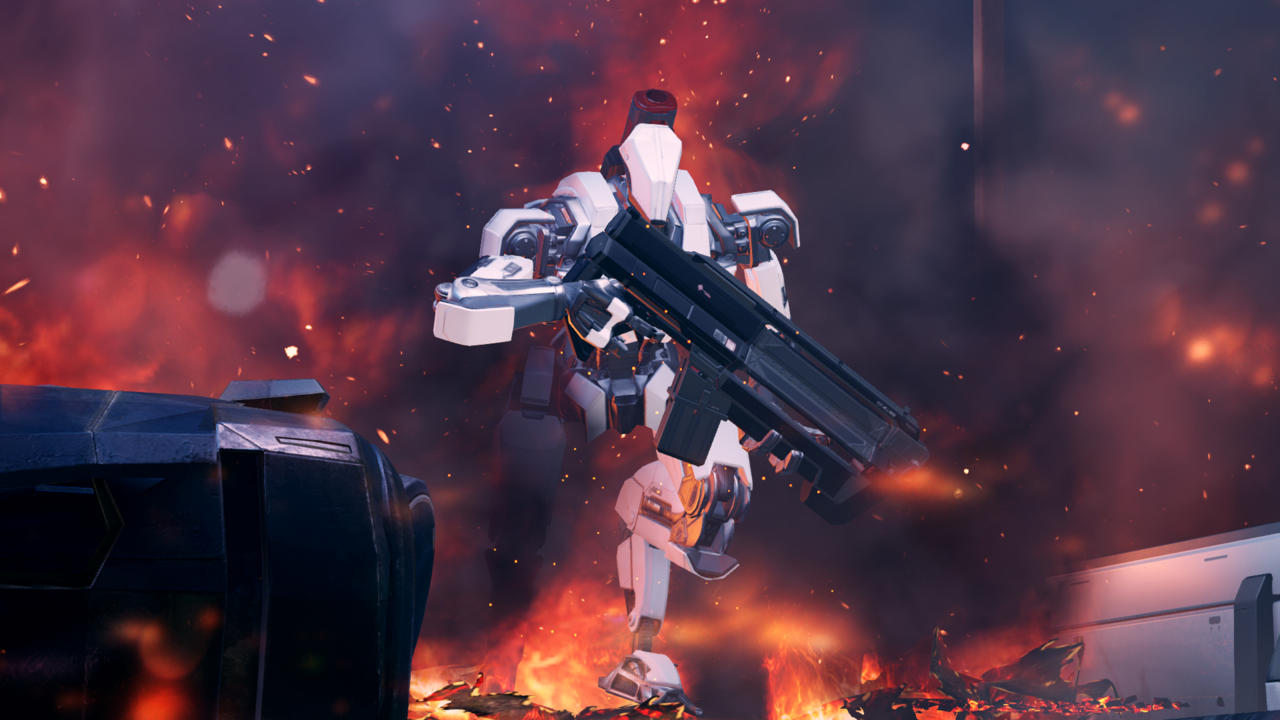In XCOM: Enemy Unknown, your soldiers needed to recover alien technology to advance their own scientific knowledge and construct better equipment. This was done automatically at the conclusion of each mission; you would receive a certain amount of alien technology to be researched and reverse-engineered. In XCOM 2, a new looting system means you can manually recover even more valuable technology from the corpses of enemies, and place it in your soldiers’ new backpacks.
“You’ll be able to take them back to base and do some very, very cool stuff–such as customising your weapons, and customising the inherent attributes of your soldiers,” says Garth DeAngelis, lead producer on XCOM 2.
Players of XCOM: Enemy Unknown have found ways to customise their soldiers’ stats in the form of gameplay mods. But that customisation was limited, and now that XCOM 2 is PC-only, the modding support this time around is going to be more fully-featured. “We’re going to have Steam Workshop support, and the Unreal editor so you can do total content conversions,” says DeAngelis. “And we’re going to release the gameplay source, so you can do partial edits to existing abilities and stats.”
One new system that isn’t based on stats is the concealment phase, which DeAngelis says allows the player to “take on the role of the invader”. Because XCOM is bringing down a corrupt alien-government alliance, your soldiers need to infiltrate enemy territory. They begin the mission in a state of concealment, which means enemy units aren’t immediately hostile when they enter your line of sight. Instead, a smaller detection radius surrounding enemies allows you to sneak closer and assume advantageous positions without alerting them. Some enemies will follow patrol routes, and you can remain hidden if you’re behind full cover when an enemy looks in your direction and walks past.
“You want to turn the tide of battle and take out that first group as efficiently as possible, and then the alarms go off, and they know you’re there,” DeAngelis adds. “Reinforcements may come. And then, it’s a more classic XCOM. We’ll be able to push on that with some later-game abilities that we’re not talking about yet. You can do some unique stealth things with them.”
Once combat does start, the increased destructibility of cover means that you’ll be in more danger—but some interesting tactical opportunities could also arise. “Let’s look at the foundation of XCOM,” DeAngelis proposed. “You have cover. What’s the most terrifying thing that can happen to you? Cover is suddenly ripped out from you. There are still toughness levels on cover, so depending on the type of ammo you have, the type of weapon tiers, cover will either stick around or go away. In the demo, the Advent were using magnetic weaponry, so that takes out baseline cover much quicker. But the other cool thing about destructibility is, if you’re in a building, and you have a unit on the second floor, or the roof, if someone shoots at you, that floor could go out from under you at any time and you can fall through–which is an homage to the original XCOM: UFO Defense.”
The way Firaxis is encouraging more dynamic events in combat carries over into the way XCOM 2’s missions are designed. Not only will every map’s layout be procedurally generated, but so will that map’s objectives.
“In EU, you had kill missions, and scripted VIP rescue missions,” DeAngelis explains. “Now, we’re sort of combining the two, within a very procedural system. Not just procedural maps, but now there are gameplay mechanics layered on top, where you don’t know exactly what you’re doing when you go in. It could be recovering intel, hacking a workstation, destroying a building–and they’re not scripted like they were in EU. They work based on a number of parts in the procedural system. So it’s super replayable.”
XCOM: Enemy Unknown fans will be familiar with that replayability, having most likely lost the game at least once and failed to repel the alien invasion. DeAngelis says the team actually has data that shows most players lost the campaign at least once, which is why XCOM 2 follows on from a scenario in which XCOM essentially failed.
“We’re not a movie; we’re not a book; we’re not beholden to what story we want to tell. What’s more interesting to us is what actually happened to players–their actual experience with the game. And that led to this–XCOM lost, the aliens occupied Earth, and that’s a reason to bring XCOM back 20 years in the future. They didn’t finish the job. For the players that did win the game, it doesn’t undermine what they did. In that universe, XCOM isn’t needed–you won the game. Your personal experience after you probably lost once or twice, you won and had that sense of triumph. But, there’s also a universe where XCOM lost. That’s what we want to tell with this story.”
And what does that mean for the Council of Nations, the mysterious body of powerful people that funded the original XCOM project? “You’ll have to wait and see,” DeAngelis teases. “There might be some continuity there.”
XCOM 2 launches in November exclusively for the PC.
Powered by WPeMatico





